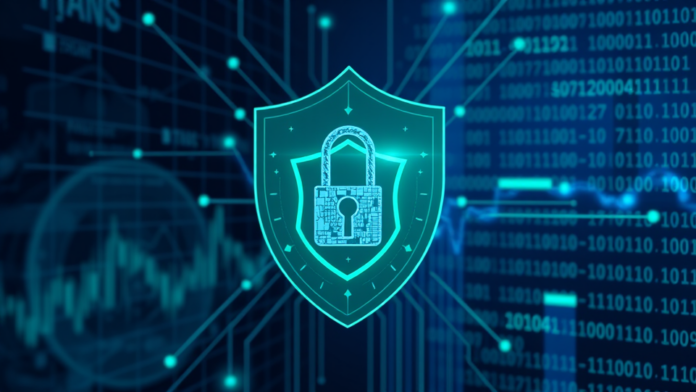Introduction to Cybersecurity in Finance
Importance of Cybersecurity in the Financial Sector
Cybersecurity is crucial in finance due to the sensitive nature of financial data. Protecting this information prevents significant losses. Financial institutions face constant threats from cybercriminals. It’s alarming how quickly these attacms can occur. Robust cybersecurity measures are essential for maintaining trust. Trust is everything in finance.
Overview of Common Cyber Threats
Cyber threats in finance include phishing, ransomware, and data breaches. These attacks exploit vulnerabilities in systems. They can lead to severe financial losses. It’s shocking how often this happens. Understanding these threats is vital for prevention. Knowledge is power in cybersecurity.
Types of Cyber Threats Facing Financial Institutions
Phishing Attacks and Social Engineering
Phishing attacks often target financial institutions, aiming to deceive individuals into revealing sensitive information. He may receive emails that appear legitimate. These messages can lead to unauthorized access to accounts. It’s alarming how convincing these scams can be. Social engineering tactics further manipulate trust. Trust is easily exploited in these situations.
Ransomware and Malware Risks
Ransomware and malware pose significant risks to financial institutions. These threats can encrypt critical data, demanding hefty ransoms. The impact can be devastating. Financial losses may reach millions. Additionally, reputational damage can be irreparable. Awareness is crucial for prevention. Cyber hygiene is essential for security.
Regulatory Framework and Compliance
Key Regulations Impacting Cybersecurity
Key regulations shape cybersecurity practices in finance. He must comply with standards like GDPR and PCI DSS. These regulations mandate data protection measures. Compliance is not optional; it’s essential. Non-compliance can lead to severe penalties. Awareness of these regulations is critical. Understanding them ensures better security.
Compliance Challenges for Financial Institutions
Financial institutions face numerous compliance challenges. He must navigate complex regulations that often change. Adapting to these changes can be resource-intensive. It requires significant investment in training and technology. Additionally, maintaining consistent compliance is difficult. This can lead to potential legal repercussions. Awareness is cay to overcoming these hurdles.
Best Practices for Cybersecurity in Finance
Implementing Strong Access Controls
Implementing strong access controls is essential for financial security. He should enforce role-based access to sensitive data. This limits exposure to unauthorized users. Regularly updating access permissions is crucial. It ensures that only current employees have access. Monitoring access logs can identify suspicious activity. Awareness of these practices is vital for protection.
Regular Security Audits and Assessments
Regular security audits and assessments are critical for financial institutions. He should conduct these evaluations at least annually. This practice identifies vulnerabilities in systems. It also ensures compliance with regulations. Key areas to assess include network security and data protection. Continuous improvement is essential for resilience. Awareness leads to better security.
Role of Technology in Enhancing Cybersecurity
Utilizing AI and Machine Learning
Utilizing AI and machine learning enhances cybersecurity measures significantly. He can analyze vast amounts of data quickly. This technology identifies patterns indicative of threats. It improves response times to potential breaches. Predictive analytics can prevent attacks before they occur. Proactive measures are essential for security. Awareness of these technologies is crucial.
Blockchain Technology for Secure Transactions
Blockchain technology offers a decentralized approach to secure transactions. He can ensure data integrity through cryptographic hashing. This method prevents unauthorized alterations to transaction records. Additionally, transparency enhances trust among participants. Smart contracts automate processes, reducing human error. Efficiency is improved in transaction execution. Awareness of blockchain’s benefits is essential.
Incident Response and Recovery Strategies
Developing an Incident Response Plan
Developing an incident response plan is crucial for financial institutions. He must outline clear procedures for identifying breaches. Timely detection minimizes potential damage. Additionally, roles and responsibilities shoukd be defined. This ensures a coordinated response during incidents. Regular training is essential for preparedness. Awareness leads to effective recovery strategies.
Post-Incident Recovery and Lessons Learned
Post-incident recovery is vital for financial institutions. He should analyze the breach to identify weaknesses. This evaluation informs future security measures. Documenting lessons learned enhances overall resilience. Continuous improvement is essential for effective cybersecurity. Awareness of past incidents prevents future occurrences. Knowledge is key to better protection.
Employee Training and Awareness Programs
Importance of Cybersecurity Training
Cybersecurity training is essential for all employees. He must understand potential threats to the organisation. Regular training sessions enhance awareness of risks. This knowledge helps prevent security breaches. Engaged employees are the first line of defense. Awareness leads to proactive security measures.
Creating a Culture of Security Awareness
Creating a culture of security awareness is vital. He should encourage open discussions about cybersecurity. Regular workshops can reinforce best practices. Employees must deel responsible for security. This shared responsibleness enhances overall protection. Engaged staff are more vigilant against threats. Awareness fosters a proactive security environment .
Future Trends in Cybersecurity for Finance
Emerging Threats and Challenges
Emerging threats in cybersecurity pose significant challenges for finance. He must stay informed about evolving attack vectors. Techniques like deepfake technology can manipulate information. This creates new risks for data integrity. Additionally, the rise of quantum computing threatens encryption methods. Awareness of these trends is essential for preparedness. Knowledge is crucial for effective defense strategies.
Innovative Solutions on the Horizon
Innovative solutions are emerging to enhance cybersecurity in finance. He should consider adopting advanced AI algorithms for threat detection. These technologies can analyze patterns in real-time. Additionally, decentralized identity solutions improve user authentication. This reduces the risk of data breaches. Blockchaim applications also enhance transaction security. Awareness of these innovations is essential for adaptation.

